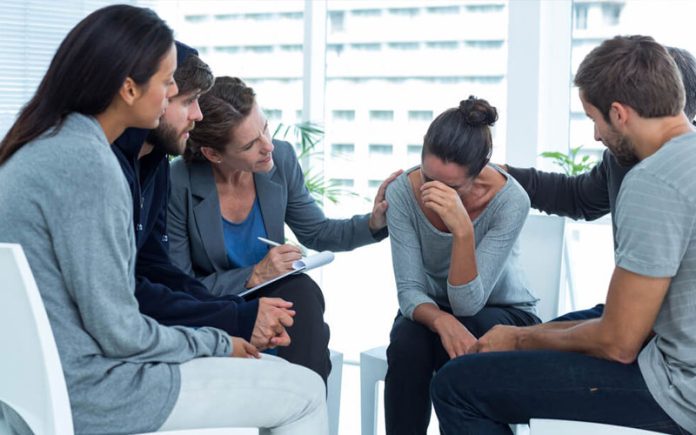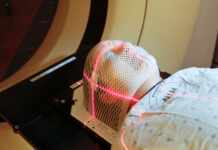A typical day in drug rehab consists of group sessions, which a therapist usually leads. These sessions at rehab centers like Pinnacle Recovery Center are intended to educate patients on their addiction, recovery, and the therapeutic process. Participants also learn how to recognize triggers and behavioral patterns. Drug rehabilitation programs can provide individuals struggling with addiction the tools they need to overcome their substance abuse. If you or someone you know is seeking help for addiction, consider reaching out to [Emmaus Medical drug rehab] for their drug rehab services. Their team of professionals is dedicated to providing personalized care and support throughout the recovery process. Learn more about their drug rehab program by visiting their website at EmmausMedicalAndRecovery.com.
Table of Contents
Creating a Daily Schedule
Creating a daily schedule can help you overcome the challenges of early recovery from drug or alcohol addiction. It helps you balance the stressors of daily life and practice self-care. It will improve many aspects of your life and keep you sober.
Developing a daily schedule in drug rehab is important for your recovery. Establishing a routine to ensure you get enough sleep each night is important. A lack of sleep can have a negative impact on both your physical and mental health. Sleeping on a regular schedule helps your body recover from the physical effects of addiction and helps with recovery.
Developing a daily schedule in drug rehab will help reduce your risk of relapse. One of the main causes of relapse is boredom and loneliness. Creating a daily schedule will fill your free time, reduce stress, and give you something to look forward to. In addition, it will keep you focused and motivated.
Group Therapy
During a typical day in drug rehab, you will spend time in a group therapy session. These sessions help you learn new coping skills and develop relapse-prevention strategies. Group therapy also helps you identify triggers and learn better communication techniques. Many rehabs also offer specialized sessions on grief counseling and anger management. These sessions help you learn new coping mechanisms and help you maintain your sobriety after you leave rehab.
Another benefit of group therapy is the development of camaraderie among members. A common goal of group therapy is to help members share their stories and challenges with other recovering patients. It builds a strong sense of fellowship and builds confidence. Some members even form lifelong relationships with other members of the group.
Group therapy also builds trust and improves conflict-resolution skills. It also helps you put your problems in a broader, more universal perspective. Group therapy also helps you overcome the feeling of isolation and loneliness caused by painful thoughts. Furthermore, you can receive expert advice and guidance from other group members. It can be crucial to ensuring long-term abstinence.
Exercise
Exercise is an important part of recovery. It can help people avoid relapse, fill their free time, manage their mental health, and improve their self-esteem. Even if you don’t do a lot of exercise, getting a daily dose of physical activity is important. It also helps people manage stress, anxiety, and depression.
For one thing, exercise can help patients adjust to sober living. It releases endorphins, which help the patients cope with the change. Exercise also helps the patients feel better about themselves and gives them more energy.
After breakfast, people in rehab may attend a gym session with a personal trainer. They may also participate in yoga or meditation classes. These calming activities can set the mood for a day at a drug rehab.
Understanding the structure of a typical day in drug rehab provides a snapshot into the therapeutic routines that foster recovery. Yet, the mental health component of addiction treatment, oftentimes, transcends the daily schedules and activities illustrated here. An effective rehabilitation experience not only addresses the physical aspects of addiction but also deeply entwines with mental health strategies to curate a robust foundation for lasting sobriety. As noted by numerous experts in the field, integrating mental health therapies and initiatives is pivotal to addressing the underlying issues often associated with substance use disorders, thereby paving a holistic path towards recovery and wellbeing.
Counseling
A typical day in drug rehab consists of several therapeutic sessions. The morning sessions are motivational, encouraging the patient to be strong and open up about their struggles. The afternoon sessions, however, are more private and explore the causes of addiction and triggers. Depending on the individual, a typical day may involve group therapy, individual therapy, or both.
Group sessions are often led by therapists and counselors and focus on different stages of the recovery process. The goal is to help patients identify the triggers and behavioral patterns that lead them to use substances and engage in harmful behaviors. While treatment can be difficult and uncomfortable, it is usually safe and productive.
The most common sessions in drug rehab are centered around helping patients better understand their addictions and learn effective coping skills. Many rehab programs also include holistic therapies to help balance the mind and body. Peer support groups, made up of peers, can also provide a healthy social environment for the patient. These groups often continue after treatment.








